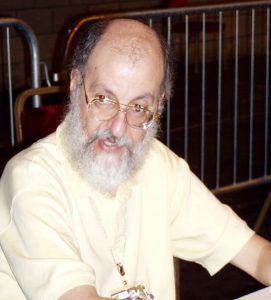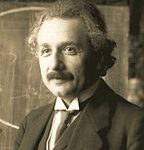Synopsis
Harry Turtledove and Martin H. Greenberg edited and compiled the best time travel short stories written by visionary writers during the 20th century in a book titled The Best Time Travel Stories of the 20th Century. In this book, the greatest visionary writers of the twentieth century penned some of their finest stories. Here are eighteen of the most exciting tales ever told, including ” ” Time s Arrow In Arthur C. Clarke s classic, two brilliant physicists finally crack the mystery of time travel with appalling consequences. Death Ship Richard Matheson, author of “Somewhere in Time,” unveils a chilling scenario concerning three astronauts who stumble upon the conundrum of past and future.

Harry Turtledove
A Sound of Thunder Ray Bradbury s haunting vision of modern man gone dinosaur hunting poses daunting questions about destiny and consequences. Yesterday was Monday If all the world was a stage, Theodore Sturgeon’s compelling tale follows the odyssey of an ordinary joe who winds up “backstage. ” Rainbird R.A. Lafferty reflects on what might have been in this brainteaser about an inventor so brilliant that he invents himself right out of existence. What if everyone time-traveled except you? Jack Dann provides some surprising answers in this literary gem. . . . as well as stories by Poul Anderson L. Sprague de Camp Jack Finney Joe Haldeman John Kessel Nancy Kress Henry Kuttner Ursula K. Le Guin Larry Niven Charles Sheffield Robert Silverberg Connie Willis By turns frightening, puzzling, and fantastic, these stories engage us in situations that may one day break free of the bonds of fantasy . . . to enter the realm of the future: “our” future.”
While the ideas in Nancy Kress’s “The Battle of Long Island” are intriguing, they are blunted by the disassociated voice of the narrator. Kress looks at a wormhole which opens between the Battle of Long Island during the Revolutionary War and the modern day. Her protagonist, Susan Peters, is an army nurse who tries to treat the wounded soldiers who occasionally fall through the Hole, eventually having to deal with the fact that the Revolutionary War opening of the Hole appears to be moving through a variety of different time-lines. At the same time, Susan must come to terms with the unknowability of her own past.
While Kress’s tale of time travel is entirely set in the present, Poul Anderson‘s time traveler goes back 1000 years in “The Man Who Came Early.” A response to L. Sprague de Camp’s Lest Darkness Fall, Sergeant Gerald Robbins finds himself in tenth-century Iceland, trying to fit into a culture he knows a little about and hoping to be able to rely on his engineering knowledge. Instead, he finds our how much his knowledge is really worth when he does not have a support system to rely upon and doesn’t fully understand the land in which he finds himself.
James Tiptree, Jr. provides a rather interesting set of relationship dynamics in “Forever to a Hudson Bay Blanket,” in which the time traveling Loolie uses time hoping to meet her true love. As the story progresses, Tiptree reveals that there is much more to the story than first meets the eye. Unfortunately, Loolie’s personality is sufficiently annoying that the reader keeps hoping that she’ll meet a time paradox and disappear from existence.
Damon Knight doesn’t create a time machine so much as a time viewer in “Anachron,” about two eccentric brothers, one of whom invents a time viewer and then vanishes and the other, a collector of art, begins to play around with the device to see the past and future. Knight plays around with paradoxes and other traditional problems of time travel in his reclusive tale.
Bill Pronzini provides his own take on the classic “Grandfather Paradox” in which someone travels back in time to kill their own grandfather before they were born in his very short “On the Nature of Time.” The story offers an effective and haunting explanation for the avoidance of paradox, which could have appeared in a straightforward manner, but which Pronzini handles well.
Many science fiction authors have compared the idea of time travel to the space travel, notably the idea of a government organization researching and funding. Philip K. Dick uses this model in “A Little Something for Us Tempunauts” about an attempt at time travel that went wrong and the methods the Tempunauts use to correct their errors and get themselves out of a temporal loop. Geoffrey A. Landis looks at the physics behind time travel “Ripples in the Dirac Sea,” in which a scientist slowly builds his theory about time travel and how it works. Subjecting himself to it before it is completely understood, he finds himself in a partially hellish existence as he realizes what his ultimate fate will be, although he can successfully postpone it for an unknown period of time and live in a happier period.
Fredric Brown is known for his quirky sense of humor and his skill with very short stories, both exhibited in “Hall of Mirrors,” which focuses on the mathematician Norman Hastings. The true situation dawns upon the reader long before Hastings figures it out, but the power of the situation comes not from Hastings’s (or the reader’s) discovery, but the questions Brown raises about the uses to which Hastings will put the knowledge he seemingly suddenly has acquired. Karen Haber responds to the housing crisis in San Francisco with “3 RMS Good View,” which uses time travel as a means of finding affordable housing. Unfortunately, the main character’s solution doesn’t work out quite as well as she might have wished and, when she finally does settle in her own time, it leaves her wondering about the events and people who were left in the 60s.
The Charles L. Harness story, “Time Trap,” demonstrates one of the problems with theme anthologies like The Best Time Travel Stories of All Time. Although it is a powerful story about fighting a repressive regime, because of its inclusion in a theme anthology, the reader knows that time travel must be involved, which causes the conclusion to be telegraphed and some of the power of the story dissipated. The best reading of this story would be in a collection such as An Ornament to His Profession (published by NESFA Press) in which the tale appears as just another of Harness’s stories without foreknowledge of the science fictional element.
Mentioned on the cover, but not on the table of contents page, is a 1993(?) comic adaptation of Ray Bradbury’s seminal “A Sound of Thunder.” While it is an interesting idea to include the illustrated version of the time travel story, it would have been nice if Malzberg would have explained why he chose to include this, rather than the original prose version, although it is a nice and true depiction of Bradbury’s tale.
The question, of course, remains whether Malzberg provided the superlative stories promised in the title. Although most of the stories work, and in many cases are memorable, Malzberg has left out many classic stories, such as Robert A. Heinlein “By His Bootstraps,” of the more recent Hugo-winning “Scherzo with Tyrannosaur,” by Michael Swanwick, although such omissions may have been due to inability to gain the rights rather than lack of recognition on Malzberg’s part. In any event, Malzberg provides several quality stories in the anthology which serve as both an introduction to time travel and a re-acquaintance with the genre.
Thanks for reading and I am waiting for your opinion:)) if you want to read the book you can find it at a great price below!
See you soon
Cristina
==> for further reading click below and you will have plenty of choices <==
- Time Travel Novels
- More Books And Stories
- Theory Books
- Time Travel Theories




Your synopsis is very informative and shows your passion in the time travel stories.
I would liked to have seen an image of the book or even a link to where I could buy the book. I think that having more images would make your post more captivating, because there is a lot of text on this post.
hello there, in the end of the text is an image and a link to amazon of you want to buy it 🙂 thanks for reading:)) more photos now:)))).
So this is basically a list of best time traveller stories compiled by Harry Turtledove? Kind of modest to leave himself off it. I’m not sure how he does specifically with actual time travel stories, but some of his alternate history series have been great reads.
The Man Who Came Early sounds particularly interesting just because it’s so open ended. A story with such a limited premise could go almost anywhere.
Personally, though, my favourite time-travel story is still H.G. Wells’ “The Time Machine” which basically grandfathered the genre.
Happy trails, Cristina.
yes you are right , Time Machine Is one of the best time travel stories but the book of Turtledove worth reading .
You will find many interesting things if you are a fun of the genre. I am glad that you enjoyed my post and stay close for more reviews:) Thanks for reading. Did you read The Man Who Came Early?
Cristina
Not yet. Just your review of it.
watch it and tell me if you like it 🙂 have a nice time :))
I love the movie “Somewhere in Time”. I must have seen it a thousand times and each time I tell myself I’m not going to cry at the end of the movie because I know what happens. Never works, I cry like a baby! The other stories you mentioned, I’ve never heard of! They sound totally interesting. Love the post!
I cried too :(((( thanks for reading and sharing with me your impression :))I think you will like most of them :))) you are a romantic 🙂 you must read The End Of Eternity ( by Isaac Asimov):) thanks again for reading 🙂
I have always been interested in time travel. I watched many old movies and TV shows and I wondered what it was like living back then, before all this digital age technology.I heard of “somewhere in time”, but i have not seen it, but i have not the other stories mentioned in the article.
Hi Cristina, I’m intrigued by this idea of time travel. I remember a teacher in science class telling us if we could travel faster than light we would be travelling through time. Also I read about meditation enthusiasts who have visited their former selves in past live which may be considered a sort of time travel. What are you thoughts on the possibilities of this phenomenon???
do you ask me about past lives what I think? is something that i thought a lot ,I also read about hypnotists that help you go in your previous live but i never tried. I didn’t have the chance but i would like. To be honest, is something different than what i wrote until now but I believe is possible. I heard about a woman who was talking in her hypnosis another language,a old one that she never knew before. How do you explain this? I think is working:) thanks for reading:)
Your review for the book is good.. very informative..
You have written the synopsis succinctly ..
Time travel is indeed an interesting topic, and is liked by many.. and the good thing is that you have dealt its synopsis well..
One thing about the article which lacks is that there is no mention of where to buy the book from.. if you could mention that
Hello there.
Actually in the end of the post you can see a gallery . There is the book shop and if you click you will find the book and many other. I am glad that you liked my review and if you want you will find more interesting books in my shop and also the reviews for each one in the section with novels.
Have a good day,
Cristina